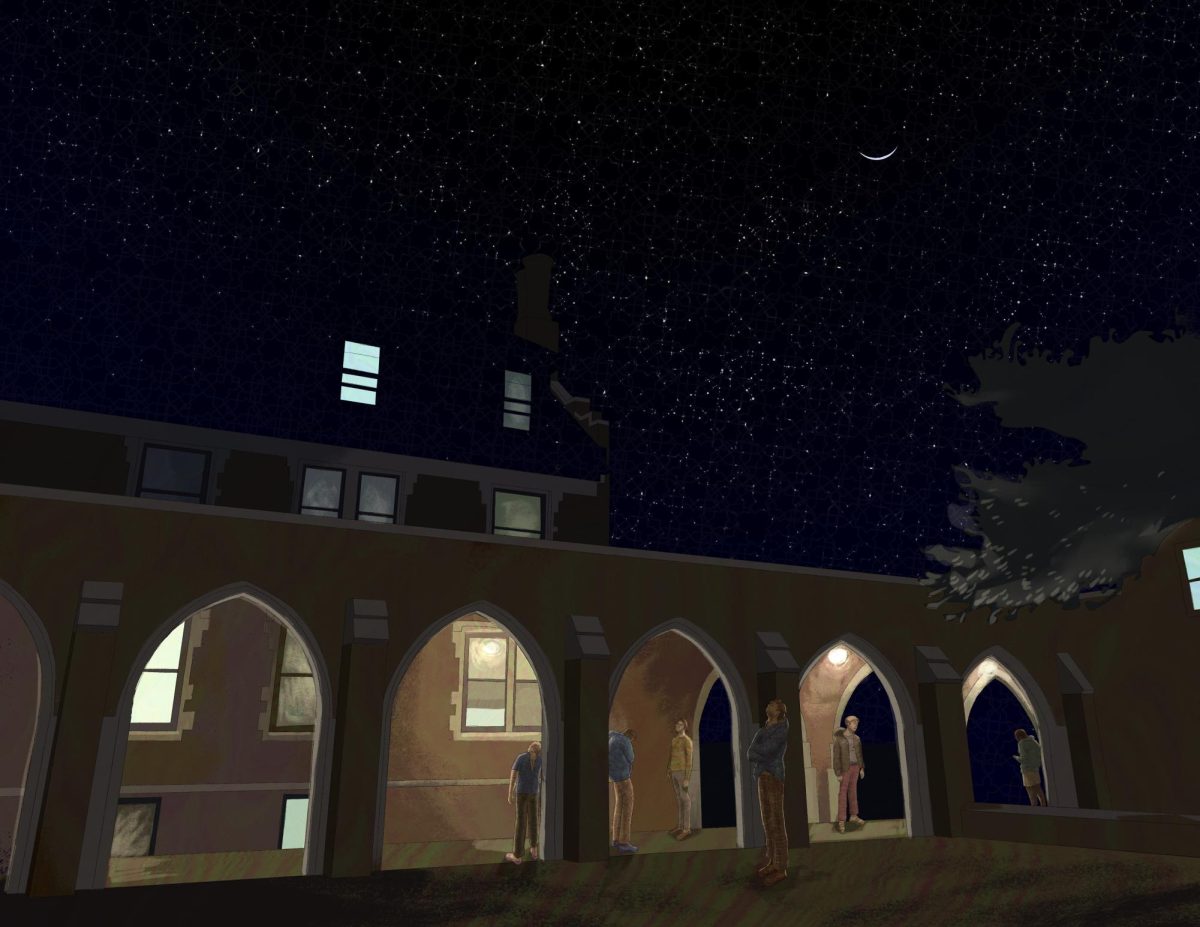When Maya Flynn `26 was woken up by a fire alarm in Smith hall at 5:37 a.m., instead of going back to sleep, they decided to wait outside in the cold until the Robert N. Noyce `49 Science Center opened at 6am to start their homework. Flynn, who kept a personal record of every fire alarm that has gone off in Smith this semester, said that the alarm on Wednesday, Feb. 8 was one of eight. In total, 38 fire alarms have been triggered across campus from Jan. 1 to Feb. 21 according to James Shropshire, Director of Campus Safety.
“That’s pretty disruptive for getting a good night’s sleep during an academic week with 8 a.m. classes,” Flynn said. “Also, it’s winter now, and theoretically when you evacuate for a fire alarm you should not be putting on your three jackets so you don’t freeze.”
Flynn also said they haven’t gone three weeks in a row this semester without a fire alarm in the middle of the night. With multiple fire alarms going off within a short period of time, most of them from 2 a.m. to 7 a.m. and lasting around thirty minutes to an hour, some students claim to have stopped taking the fire alarms seriously, no longer evacuating when they hear the alarm. Students say they also assume most of the alarms are false alarms — because they usually don’t smell smoke.
Ella Berman `26, who lives in Smith, said that most of the time she stays in bed when she hears the alarm.
“I used to take them seriously. I used to leave the building every time,” she said. “As long as I don’t hear fire trucks I’m like, I’m gonna stay in my room.”
“It’s probably really unsafe, because I don’t see anybody go outside — maybe a few people each time,” Rebecca Fox `24, who lives in Younker, said. “I just assume they’re all false alarms so I don’t know what [Campus Safety] would do if it’s real because they’d still have to come in and get everybody out.”
According to Flynn, on Wednesday, Jan. 24, an alarm went off around 7 a.m. that was seemingly caused by someone making pancakes in the kitchen.
“That was the only time that there was any indication of what actually was the thing that set it off,” Flynn said.
Berman, who also recalled the scent of smoke from the kitchen, said it was valid for the fire alarm to trigger since she could see the smoke rise to the third floor. But for the other times, “I just don’t understand why they’re being triggered seemingly by nothing.”
Shropshire estimated 95% of alarms per semester are false, most triggered by “maintenance issues” such as “sensor malfunctions, low battery warnings and sensitivity to cooking fumes or steam,” he wrote in an email to the S&B.
There was a real fire in Cleveland Hall recently however, caused by a cigarette in the trashcan of the women’s first floor restroom. The fire was “promptly extinguished, and the area was ventilated to dissipate smoke,” he said.
Flynn, who experienced a fire emergency when a wood stove broke in their old boarding school, said they are one of the only people she can see who evacuate when the alarms go off.
“I feel obligated to evacuate because of fire alarms, but it’s really annoying for me to do that in the middle of the night,” Flynn said. “And it’s never been a real problem. Like I think that if there was ever a real problem a lot of people would get hurt.”
Daniel Sicard, fire chief of the Grinnell Fire Department, said that the college handles their own fire alarms through a security company and must notify the department if multiple fire alarms from the same building go off, if there is smoke or if a sprinkler is triggered.
“I don’t think we’re necessarily getting notified as much as they should be notifying us,” Sicard said, “but I can’t say until we know for sure.”
Sicard also explained what he understood to be the procedure for Campus Safety officers who respond to the fire alarms. He said they first must locate a panel within the dorm that identifies which alarm is going off. After figuring out which alarm is going off and investigating it, they finally have to return to the panel to reset the system and disable the alarm.
“If they went in and silenced the alarm before they investigated it, then they’re doing the same thing — assuming it’s nothing — and that could be dangerous,” Sicard said. He also said this procedure could explain why the alarms go off for long periods of time.
In terms of improving fire safety at Grinnell, Sicard recommended that students have a proper response to the fire alarms, which would mean evacuating the building.
Since the fire department does not automatically get notified when there is a fire alarm at Grinnell, Sicard said, “I would recommend for your students that if they ever have an alarm and they smell smoke, don’t hesitate to call 911, because we are not responding unless somebody tells us. We don’t even know anything about the alarm until somebody notifies us.”























































